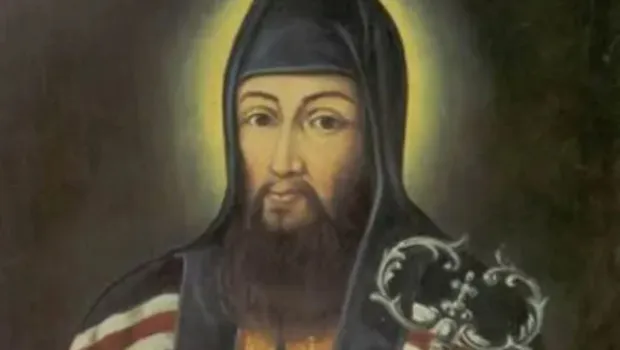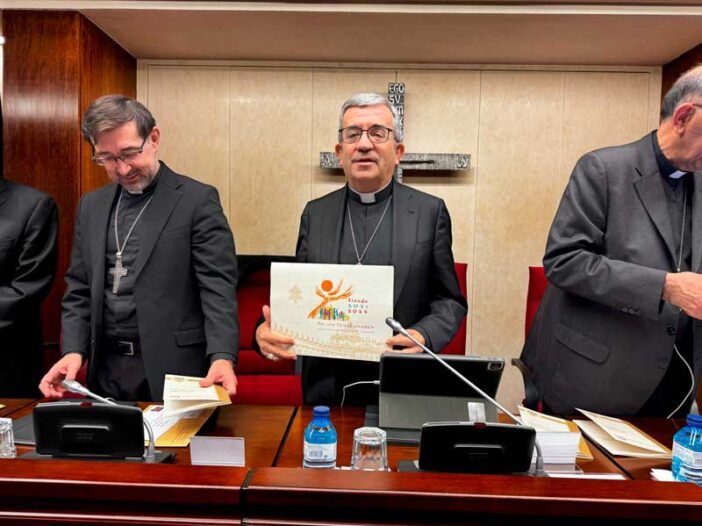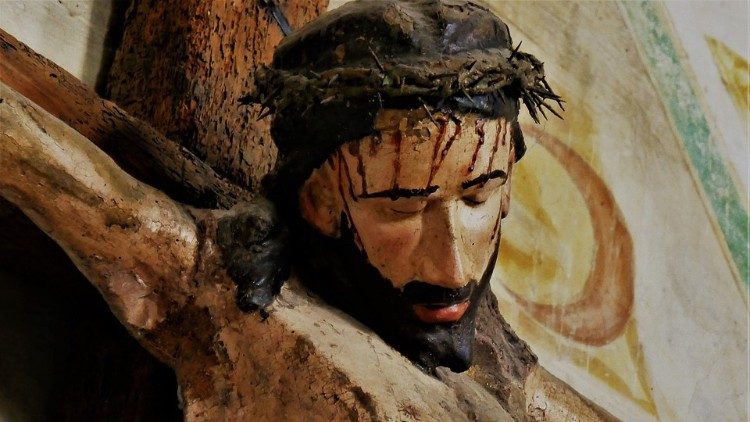San Giosafat Kuncewyz, Santoral,
Born into a family of fervent Orthodox believers, Josaphat was sent to Vilna at a very young age to learn to trade, and there he became closely aware of the doctrinal contrasts between the Orthodox Ruthenian Catholics who had joined the Catholic Church (Uniates) and the Orthodox who did not accept such unification with the […]

Born into a family of fervent Orthodox believers, Josaphat was sent to Vilna at a very young age to learn to trade, and there he became closely aware of the doctrinal contrasts between the Orthodox Ruthenian Catholics who had joined the Catholic Church (Uniates) and the Orthodox who did not accept such unification with the Latin Church. After deep reflection, he decided to join the Greek Catholics. He then retired to the Basilian monastery of the Holy Trinity and lived there as a hermit for several years, during which time he strengthened his theological convictions, which were also expressed in some written works in which he tried to demonstrate the Catholic origin of the Ruthenian Church and its primitive communion with the Holy See. With his writings, he also urged the reform of the monasteries of the Byzantine rite and the reaffirmation of the celibacy of the clergy.
From hermit to apostle of unity
When Josaphat studied the doctrines of the Fathers of the Church, he was fascinated by them. By delving into the tradition of the Fathers, he clearly saw how faithful they had been, custodians and transmitters of revealed truths, and how much it was necessary to begin to remember their teachings. He was very convinced of this. He also recognized that the thought of the Fathers of the Eastern Church had in no way undermined the unity of the Catholic Church, on the contrary, he realized that unity and universal plurality have in themselves such spiritual beauty that they cannot fail to always be united. It was therefore necessary to work together and in favor of one Church, one flock to lead the sheep guided by one shepherd who was the Pope. Not seeing him as just a simple man, but as the Shepherd of the universal Church by the will of Christ. Remembering also that the will of God expressed in his Word is an eternal Word that does not change, because it remains valid forever.
The accusation of being a “kidnapper of souls”…
Josaphat based his ministry on the conviction that unity in diversity was possible: first as a monk and founder of the monasteries of Byten and Zyrowice, then as bishop of Vitebsk and coadjutor of Polotsk, of which he became archbishop in 1618. And it was precisely because of his openness to the plurality of expressions of faith that always respected the unity of the one faith, that his detractors began to accuse him of being a proselytizing “kidnapper and thief of souls” of the Orthodox Church. In reality, Josaphat had never abandoned the Eastern liturgical expressions, because, instead of adopting Latin in the liturgy, he kept the old Slavic language and based his teaching essentially on two foundations: fidelity to the See of Peter and to the tradition of the Fathers.
The historical-political context
Josaphat was born in Wolodymyr in Volnya, in the territory of Subcarpathian Ukraine, which in the 17th century was part of Czechoslovakia and which was annexed to the Soviet Union only after the First World War. In that context, a cruel persecution took place against the local Church faithful to Rome – the Uniate Church – which was forced to submit to the Moscow Patriarchate. The territory in question – also called Ruthenia – was inhabited by populations with strong autonomist tendencies that at a certain point, in 1938, seemed to take shape with the creation in Uzhorod of a Ruthenian government supported by the Germans. However, after the Second World War, the Ruthenian Catholic Church (which was the only one to have survived after the partitions of Poland in 1700 and which had passed under Austrian rule) decided to join the Orthodox Patriarchate of Moscow. Today, only Ruthenians who emigrated or escaped Soviet deportations have been able to freely continue their traditions and profess their fidelity to Rome.
This is a prayer to receive the gifts of the Holy Spirit through the intercession of St. Josaphat Kuncewyz:
O Father, full of goodness,
who sent your Holy Spirit to Bishop Josaphat
to make him capable of offering his life for his people,
we also beseech you to today
send your divine Spirit to all your children,
so that, strengthened by His divine charity,
and closely united in the confession of faith in Jesus Christ,
your beloved Son, and our Lord,
we, too, may receive the grace
to give our lives for our brothers.
So be it.
Related

Bishop Luis Argüello Addresses the Challenges of the Church in Spain
Exaudi Staff
01 April, 2025
2 min

THE WAY OF THE CROSS: Accompanying Jesus on the way to the Cross
Luis Herrera Campo
31 March, 2025
5 min

Mother Carmen Rendiles, the first Venezuelan saint proclaimed by the Universal Catholic Church
Exaudi Staff
31 March, 2025
3 min

The International Academy of Catholic Leaders: Renewal and Commitment to its Mission
Exaudi Staff
30 March, 2025
4 min
 (EN)
(EN)
 (ES)
(ES)
 (IT)
(IT)

